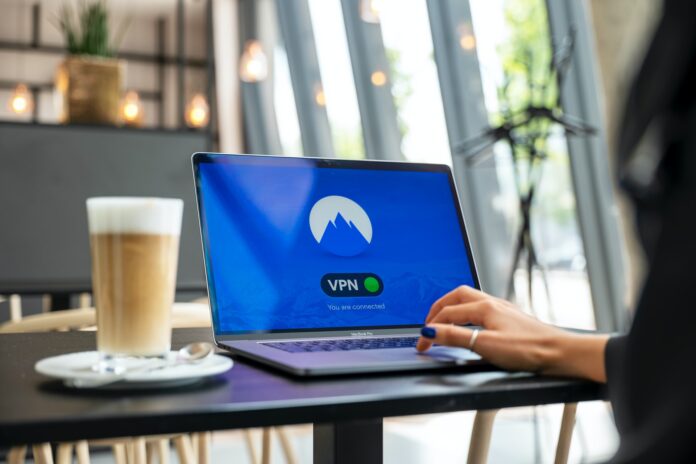VPN stands for Virtual Private Network. In short, VPN is a network that’s private and secure because it uses encryption to ensure data confidentiality.
This is important in today’s world where you’re constantly on the go and your connections are not always safe from prying eyes or hackers trying to steal information from you.
With a VPN service, all of your traffic will be encrypted so even if someone was able to intercept what you were doing they would only see an unreadable sequence of letters and numbers instead of being able to read any personal information about you.
So, why do I need a VPN for my business?
Well, security is just one reason but there are many more compelling reasons too: access remote files securely when working with teams; bypass censorship restrictions when traveling or living in a country with restricted internet access, or even use it to improve your online privacy.
To understand more about VPN, continue reading the following sections.
1. Why should you use a VPN for your business?
There are a number of reasons why you should use a VPN for your business. Perhaps the most important reason is that a VPN can help protect your data.
By encrypting your traffic, a VPN can make it difficult for anyone to spy on your online activities. This can be especially important when you’re working remotely, as it can help keep your information secure.
Another reason to use a VPN is that it can help you access blocked websites and services. Many businesses block certain websites or services for security reasons, but a VPN can help you get around these restrictions.
This can be useful for accessing important files or tools that are blocked by your company’s firewall.
Finally, using a VPN can also help improve your personal privacy. Though it’s not the only option available for improving your online privacy, a VPN can be extremely useful in this regard.
This is because when you connect to a VPN, all of your traffic will be routed through the VPN service’s servers before going out onto the wider internet.
The result is that any bad actors monitoring what you do on the internet will see whatever IP address belongs to the VPN service rather than your true IP address.
2. Types of Businesses that would benefit from having a Virtual private network (examples)
There are a multitude of industry sectors where a VPN service would be advantageous for businesses.
For example, a VPN can provide secure access to a corporate intranet while the employee is traveling or working from home.
Similarly, a VPN service could be used by employees who want to encrypt sensitive company data when connected to public or untrusted networks such as Wi-Fi hotspots in airports and cafés.
A university could also benefit from having its students use a VPN to access resources restricted to campus when on laptops outside of the school’s network connection.
In these cases, the organization will have more control over which specific computers and users are allowed access outbound through the organization’s network.
These examples illustrate how people in different occupations with differing levels of technical knowledge could benefit from a VPN.
3. How to choose the right VPN service for your different business needs
Choosing the right VPN service can be an overwhelming task. There are so many factors to consider, including cost, performance, locations, compatibility with your OS and device.
It’s no surprise that it might take quite a while to find the perfect match.
Here are some things you should consider when looking for the best VPN service for your business needs:
- What type of traffic do you need to encrypt?
Some VPN services are better at encrypting certain types of traffic, such as email or web traffic.
Make sure to choose a service that can encrypt the type of traffic you need it to.
- How many devices do you need to protect?
Not all VPN services have the same number of devices that they can protect. Make sure to find one that will cover all of your devices.
- What is your budget?
VPN services can vary in prices, so make sure to find one that fits within your budget.
- What are the performance requirements?
VPNs can slow down your internet connection, so make sure to find one that won’t impact your business’ productivity.
- What are the compatibility requirements?
Not all VPN services work with every device or operating system. Make sure to find one that is compatible with the devices and systems you are using.
- What are the geographical restrictions?
Some VPN services have geographical restrictions, meaning that you can only use them in certain areas.
Make sure to find a service that has servers in the areas you need them to be in.
- What is customer support like?
VPNs can sometimes be complex, so it’s important to find a service with great customer support in case you run into any issues.
By considering these seven factors, you will be able to choose the perfect VPN service for your business needs.
Conclusion
It’s no surprise that small business owners are hesitant to invest in VPNs.
It may seem like a luxury or unnecessary expense, but it can actually be quite useful for small businesses with employees who need secure access over the internet on different devices.
A VPN service will also protect your data from being intercepted by bad actors monitoring what you do online.
In this article, we’ve outlined some of the many benefits that come from using a VPN and how they could help grow your bottom line if implemented correctly.





